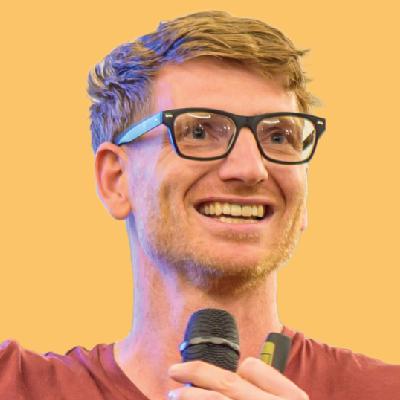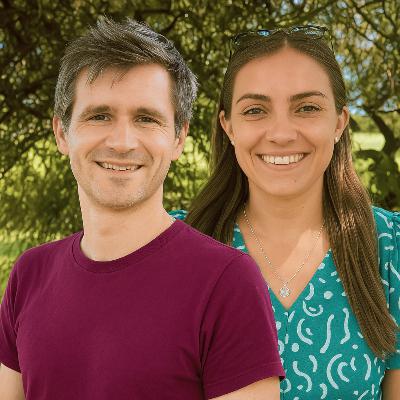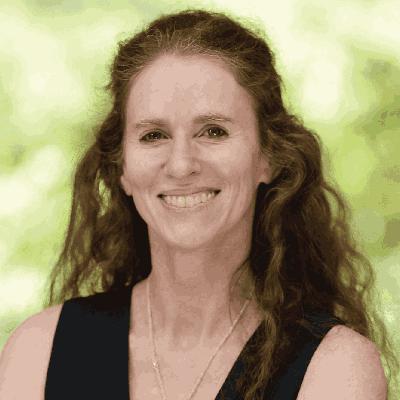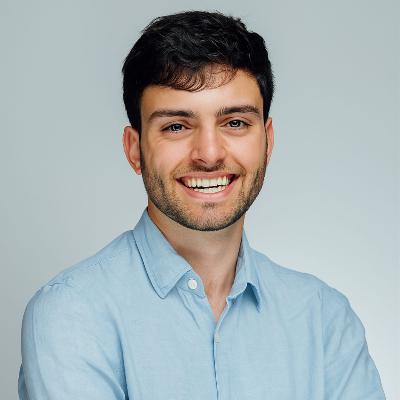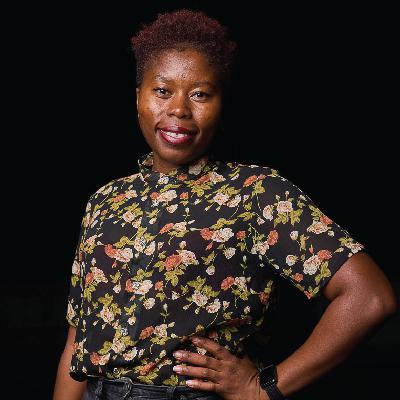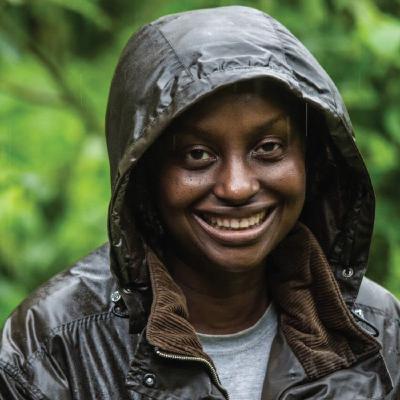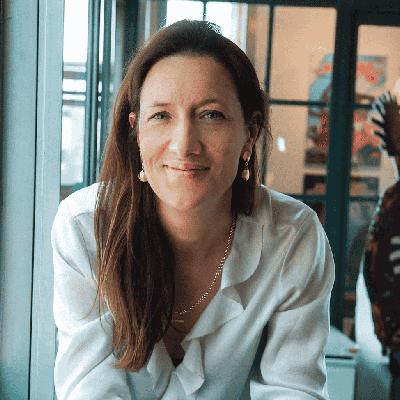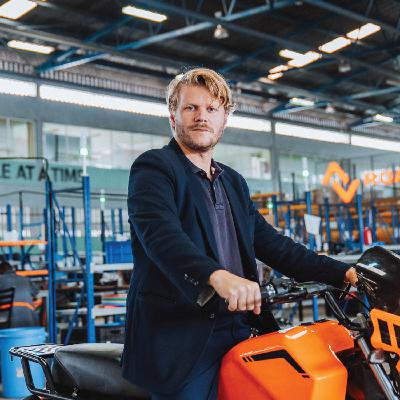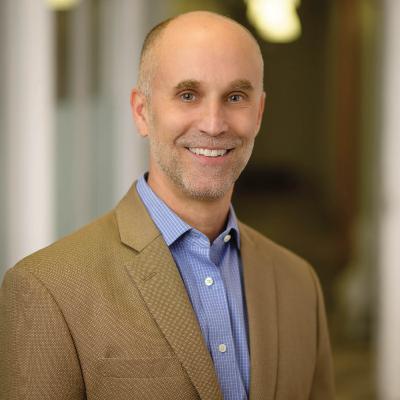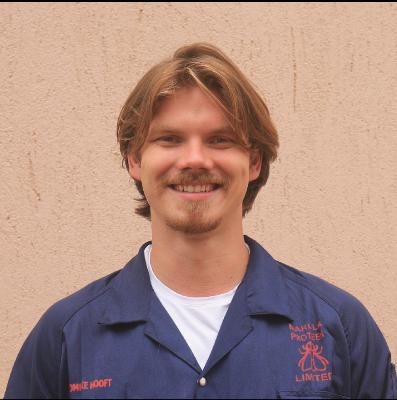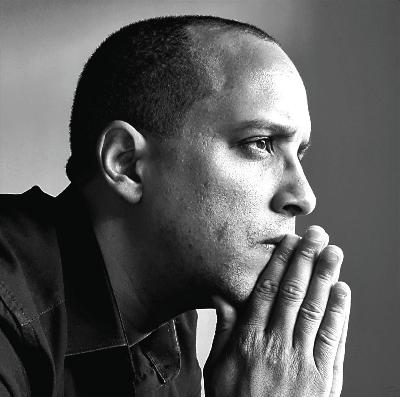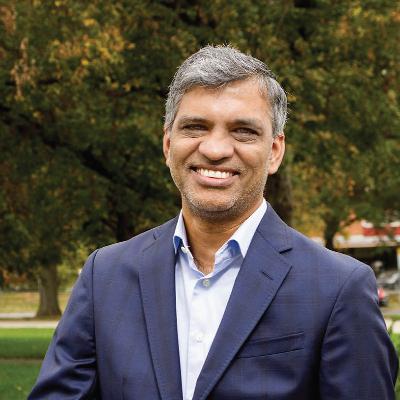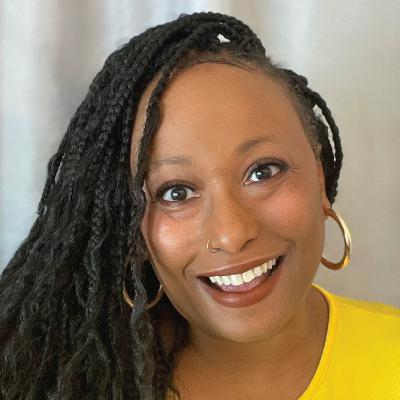Discover The Samuele Tini Show - where business, innovation, and sustainability converge
The Samuele Tini Show - where business, innovation, and sustainability converge

The Samuele Tini Show - where business, innovation, and sustainability converge
Author: Samuele Tini
Subscribed: 5Played: 67Subscribe
Share
© Copyright 2024 All rights reserved.
Description
Are you satisfied with your understanding of sustainability? If you are not Imagine a journey together. Academia, NGOs, businesses , social enterprises, innovators, and regulators will share their views and solutions to the greatest challenge of our time. 3 episodes per month,9,19 and 29!
176 Episodes
Reverse
Stop Chasing Sexy Startups: Why Boring Businesses Win in Africa
Fifteen years ago, Kyle Schutter had a choice: get a PhD in biofuels or move to Africa and start a biofuel company. He chose the second option — and landed in Kenya after what he calls the “blue cheese test”: if a country could produce local blue cheese, it probably had enough cold chain, middle class and basic infrastructure to build serious businesses.
His first venture, a biogas company selling to low-income farmers, raised money and revenue… but never made a profit. His second, a Thai restaurant in Nairobi buying from poor farmers and selling to rich Nairobians, was profitable from month one. That contrast led him to a simple conclusion: a good entrepreneur in a bad business will still lose.
Today Kyle runs Kuzana, an investment and acceleration platform that backs what he proudly calls “boring and profitable businesses” — soybean aggregators, agri-SMEs, and other non-flashy companies that feed the economy and can grow without burning cash. Kuzana offers small, fast capital (starting around $20k), plus a 12-week programme focused on focus, professionalisation and community. On average, companies in the programme 2x their revenue and gross profit in just 12 weeks.
We talk about why tech in Africa is often overbought, why SMEs face 100% interest locally while the same trade can be financed at 10% in Europe, and what it takes to mint 1,000 millionaires from “boring” businesses. Along the way, Kyle shares concrete stories — like Greenwells, a soybean aggregator that 4x’d in seven months and produced Kuzana’s first on-paper millionaire.
If you care about where real, scalable wealth in Africa will come from, this episode is a sharp, honest reality check.
Special Episode — Recorded live at the Oppenheimer Research Conference 2025.
In South Africa’s fight against rhino poaching, data—not emotion—drives progress.
Conservation researchers Dr. Timothy Kuiper and Lucy Chimes share the results of their multi-reserve study on what actually reduces poaching. From aerial patrols, drones, and canine units to the controversial dehorning strategy, they discuss what works, what doesn’t, and why context matters. The evidence shows dehorning can significantly reduce poaching—but only when combined with strong security, community partnerships, and demand-side solutions.
A rigorous, evidence-based look at how science is shaping the next chapter of rhino conservation.
Special Episode — Recorded live at the Oppenheimer Research Conference 2025.
What does it really take to make wildlife land use financially sustainable?
Veterinarian and impact-investing specialist Dr. Susan De Witt explores the economics behind conservation, from private conservancies to community lands. She explains how revenue models (photographic tourism, hunting, live sales, and wildlife meat) interact with property rights, wildlife user rights, and access to finance. We unpack the successes of Namibia’s community conservancies, lessons from South Africa’s private sector, and what it will take to channel capital toward conservation that pays people fairly and protects ecosystems.
Join Samuele tini as he walks listeners into the heart of the Silicon Savannah, tracing a personal journey from London to Nairobi with Ben Hyman, CEO of Talent Safari. Through candid storytelling, Ben reveals the messy, human side of hiring in fast-moving startups — the missed connections, the rare self-starters, and the small bets that turn interns into founders.
Along the way, they untangle practical strategies for founders hunting their first hires, hard-won advice for young talent breaking in, and a clear-eyed look at how AI will reshape recruitment without replacing the human spark. This episode is a roadmap for anyone eager to build or join the teams shaping Africa’s tech future.
Special Episode 3 — Recorded live at the Oppenheimer Research Conference 2025.
South Africa needs more clean energy and raptors need safe skies. Raptor biologist Merlyn Nomusa Nkomo lays out practical ways to make wind farms wildlife‑smart without stalling the transition. We cover how risk mapping keeps turbines out of migration corridors, why blade painting and shutdown‑on‑demand (triggered by radar or trained observers) can cut collisions, and how developers, scientists, and regulators share data to avoid hotspots. It’s a fast, pragmatic conversation about building the grid while protecting endangered species.
Special Episode 2 — Recorded live at the Oppenheimer Research Conference 2025.
In Kenya’s Amboseli ecosystem, people and wildlife have shared space for millennia. Conservation leader Dr. David Western explains how that coexistence works today: mirrored migrations between herds and wildlife, community scouts complementing state rangers, and “parks beyond parks” where tourism outside gates pays landowners to keep habitat open. We dig into restoring mobility to heal degraded grasslands, using early‑warning systems so pastoralists can off‑load or move livestock ahead of drought, and building local institutions that align incentives. It’s a clear blueprint for scaling coexistence across Africa’s rangelands, practical, proven, and community‑led.
Special Episode 1 — Recorded live at the Oppenheimer Research Conference 2025.
A scabies outbreak among mountain gorillas sparked a new way of working. Dr. Gladys Kalema‑Zikusoka tells the origin of Conservation Through Public Health and how a One Health approach links gorilla protection, community healthcare, and livelihoods. We discussed Village Health & Conservation Teams, why tourist masking remains standard to protect great apes, and Gorilla Conservation Coffee, which pays farmers a premium and funds local programs. And her story as a leading conservationist in Uganda and worldwide.
Electric buses are not a pilot anymore. As Dorcus Wanjiru Kamotho explains, BasiGo already has ~100 e‑buses on the road across Kenya and Rwanda, with hundreds more reserved. The unlock: a Pay‑As‑You‑Drive model—lower deposit plus per‑km fee that covers charging and service—paired with night‑time charging on Kenya’s largely renewable grid. We dive into local assembly with KVM (Thika), the new King Long platform to scale production, and how service capability (incl. CATL battery partnership) improves uptime. We also cover policy, open charging, and why passengers in Nairobi literally wait for the e‑bus even when a diesel bus arrives first. A practical blueprint for taking EV transit from proof to scale.
Dr Anyse Pereira grew up in Cabo Verde, trained as a scientist in Europe, built programmes with the UN and Mercy Corps, and the corporate world—bringing a data‑driven, project‑management lens to sustainability. In this candid conversation, she explains the compliance–value–values triad, how to speak numbers to numbers people, and why purpose can beat budget (including the €5 “Science Parliament” that moved a nation). We dive into community‑led climate insight (what fishmongers’ “less colour” tells us), the pitfalls of alarmism and virtue signalling, and the career truth that “your biggest brand is you.
Disclaimer - Since recording Anyse has left her corporate position at Toyota.
What does it take to comply with the EU’s deforestation rule and create value for farmers and brands? Alessandro Chelli from Trusty explains how his team built a mobile‑first, offline data stack that gets plot‑level evidence from smallholders, validates claims with certifiers , and writes the results to an audited blockchain—so it is proof, not promises. We cover the EUDR baseline (plot mapping + due diligence), the shared‑cost model that makes tools free for co‑ops when buyers adopt, and why garbage‑in/garbage‑out is solved with third‑party checks before timestamping. We also look ahead: using the same field data for biodiversity/carbon credits, parametric insurance, and even value‑sharing via smart contracts. A practical roadmap from compliance to competitiveness
How far can a story travel — and how much can it change? In this episode, Bridget Deacon, Managing Director of Shujaaz, Emmy Winner and leading B Corp, explains how youth‑first storytelling moves beyond entertainment to shape behaviour, unlock livelihoods, and shift social norms across Kenya. From radio, print and TV to social media and an AI‑enabled chatbot, Shujaaz meets young people where they are, surfaces their lived realities without judgement, and turns authentic voices into collective action.
We discuss: designing with youth rather than for them; what it takes to build trust in an age of misinformation; why tackling livelihoods, reproductive health, gender norms and climate action requires sustained, multi‑platform narratives; and how a B Corp model helps a mission stay accountable and scalable. Bridget also shares practical lessons on devolving creation and research to local youth leaders, and how small, relatable stories can trigger system‑level change.
A candid, hopeful conversation about narrative power, measurable impact, and a generation writing its own rule book.
Too often we hear Africa described as “emerging.” But as my guest Tom Fels, CEO of Animarem, explains — Africa is already shaping the future of global business.
In this new episode of The Samuele Tini Show, Tom shares:
✅ Why African enterprises are future markets, not just emerging ones
✅ How B Corp certification is helping businesses prove purpose + profit
✅ The real opportunities (and hurdles) in accessing capital in growth markets
✅ Practical lessons from working with purpose-driven entrepreneurs
If you believe in Africa’s role in shaping tomorrow’s economy, this conversation will inspire you.
Do you agree that Africa isn’t just emerging but leading?
Africa is driving an EV revolution—and Roam is leading the charge. ⚡
This week, Hans van Toor Strategy & Innovation Lead at Roam, explains how locally manufactured electric vehicles can transform communities, economies, and the environment.
✅ Roam’s vision for green mobility in Africa
✅ Tackling range anxiety and infrastructure hurdles
✅ Economic benefits of home-grown electric transport
Learn how Africa can power the global future of electric mobility.
Can businesses genuinely help save wildlife and biodiversity?
Join us this weekend with former Ferrari and Omega executive Michele Sofisti, now CEO of Nzatu, who believes they can.
✅ From luxury brands to conservation-focused business
✅ How regenerative agriculture helps wildlife and communities
✅ The potential of ethical commodities to transform Africa
Discover how business can be a powerful force for conservation and community empowerment.
Traditional aid isn’t delivering. So, what’s next?
In this week’s podcast, Todd Kirkbride, an expert in private-sector partnerships with extensive experience at USAID and TechnoServe, reveals why public-private partnerships hold the key to lasting impact in emerging markets.
✅ Why traditional aid models are struggling
✅ How partnerships can drive climate resilience and food security
✅ Essential lessons on building trust and aligning incentives
Discover how cross-sector collaboration can lead to transformational change.
In this fascinating episode of The Samuele Tini Show, meet Tommie Hooft, CEO and co-founder of Proteen, an innovative startup transforming waste management and agriculture in East Africa using Black Soldier Flies (BSF).
Key Points:
Discover how tiny insects can revolutionize waste management by turning organic waste into high-quality fertilizer.
How Proteen's unique approach using BSF tackles both environmental issues and economic challenges.
Practical insights on regenerative agriculture and circular economy solutions.
Why turning waste into wealth is not just good for the environment—but also good business.
Join us to understand how innovative startups like Proteen are reshaping sustainability in Africa, turning small insects into big impact.
Is Africa’s investment model broken?
On this thought-provoking episode of The Samuele Tini Show, we meet Nick Mwai, Founder and CEO of Pumapa Capital, who is challenging traditional investment models in Africa’s startup ecosystem. Nick shares his inspiring journey from corporate finance to pioneering a more inclusive and impactful approach to private equity.
Key Points:
Why billions earmarked for African startups rarely reach them, and how to fix it.
How democratizing private equity can unlock growth for emerging African businesses.
Practical advice for founders navigating Africa’s unique investment landscape.
Real examples of how patient, purposeful capital creates true transformation and profitability.
Nick reveals how a fresh approach to investment—driven by transparency, local knowledge, and long-term thinking—can genuinely empower entrepreneurs, transform communities, and reshape Africa’s future.
Tune in to discover the untold story of investing in African startups.
Zero Is the New Hero: Inside the Global Network for Zero
Can businesses truly achieve net zero emissions by 2030—or even sooner? On this episode of The Samuele Tini Show, host Samuele Tini welcomes sustainability powerhouse Mahesh Ramanujam, former president and CEO of the U.S. Green Building Council (USGBC) and founder of the Global Network for Zero.
From his early life in India, where sustainability meant survival, Mahesh has led a global transformation in green building practices through the renowned LEED certification. Now, he's going further, leading an ambitious global movement aiming for total decarbonisation.
In this insightful episode, you'll discover:
Why Net Zero is no longer just an ambition, but a necessity for businesses everywhere.
How certification can create transparency, build consumer trust, and spur competitors into action.
The critical role of technology, particularly AI, in rapidly scaling sustainable solutions.
Powerful examples of businesses already achieving remarkable progress toward zero emissions.
Mahesh delivers an optimistic yet pragmatic vision: sustainability isn’t just about protecting our planet—it’s about driving innovation, growth, and lasting value for all.
Building Better Businesses: Lucy Muigai on Africa’s B Corp Movement"
Join host Samuele Tini in an inspiring conversation with Lucy Muigai, CEO of B Lab Africa, as they delve into why Africa is uniquely positioned to lead a global movement of sustainable, purpose-driven business.
Lucy shares her journey from finance to leading the African B Corp movement, highlighting how businesses across the continent are combining profit with purpose. We discuss the groundbreaking changes to the global B Corp standards and what these mean specifically for African enterprises aiming for sustainable impact.
You’ll gain powerful insights into:
Why African businesses should adopt the B Corp model now more than ever.
Practical examples of successful African B Corps driving environmental and social change.
How local sourcing, stakeholder governance, and robust sustainability metrics can transform your business for the better.
If you're passionate about the role of businesses in building a resilient, equitable, and prosperous Africa, don’t miss this transformative episode!
On the latest episode of The Samuele Tini Show, I'm joined by powerful DEI advocate Ebony Adams, leader at Pariveda and author of History vs Women. We explore tough, uncomfortable questions about inclusion that most organisations avoid:
🔥 Why does DEI face so much backlash—and how can businesses push back?
🔥 Are your diversity efforts genuinely impactful or just performative?
🔥 What hidden biases could AI be amplifying, and how can we ensure technology doesn't deepen inequality?
Ebony delivers candid truths and fresh insights into crafting authentic DEI strategies that are holistic, impactful, and truly transformative—especially within purpose-driven organisations and B Corps.
Ready to move beyond superficial gestures and embrace true inclusion?
🎧 Listen now to spark the real conversations we all need.


